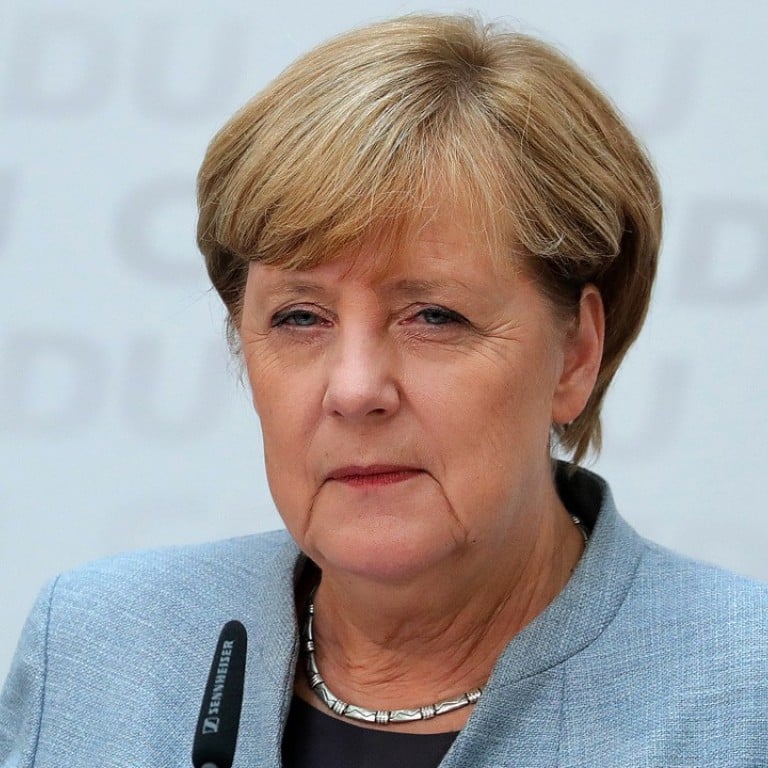
Despite election gains, right-wing nationalists will have no influence in country, Merkel tells Germany
German Chancellor Angela Merkel sought to play down the significance of a nationalist party that surged into parliament in Sunday’s election, saying it won’t have any influence on the country’s foreign, European and refugee policies.
Alternative for Germany (AfD) took third place in the election following a campaign that focused on harsh criticism of Merkel and her decision to let large numbers of migrants into the country. Other parties have refused to work with it.
Asked whether AfD’s performance will affect German policy in any way, Merkel replied on Monday: “I don’t think so.”
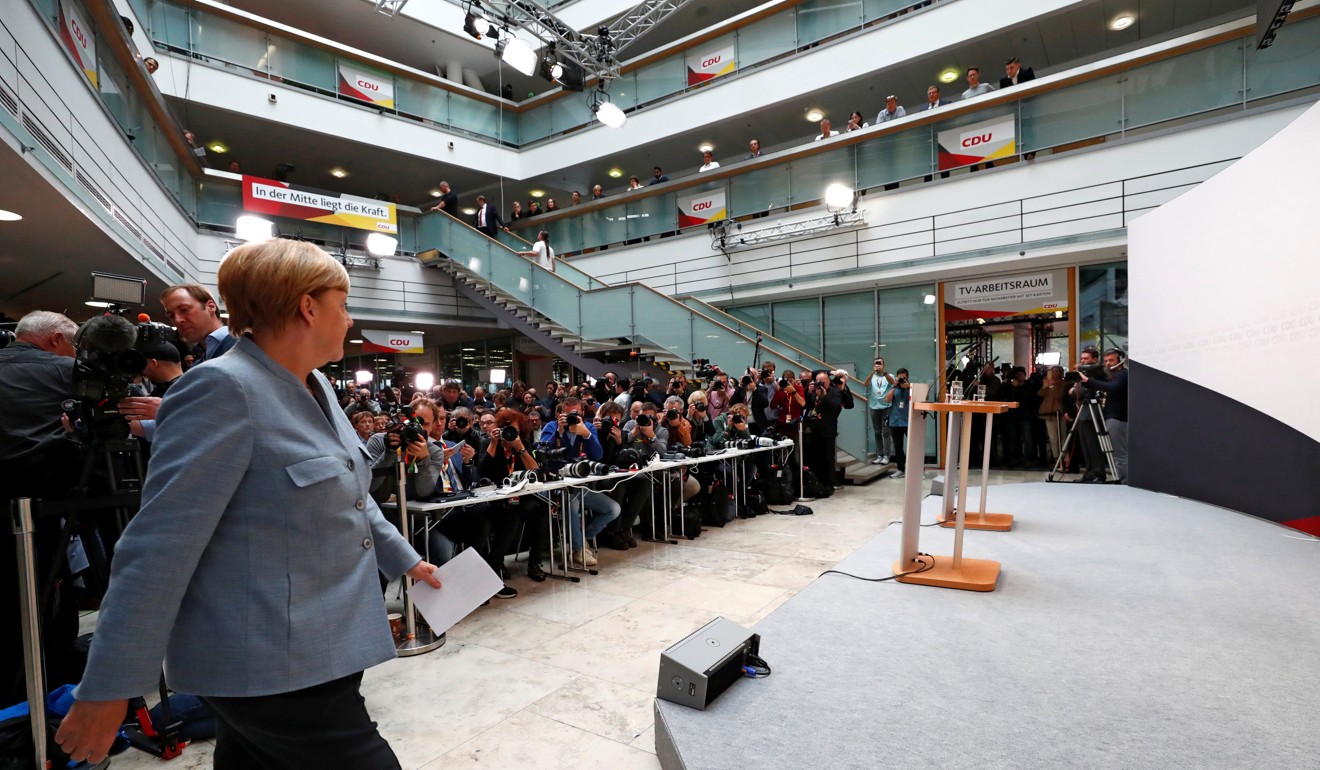
“The parties that are capable of forming coalitions with each other will seek solutions – there are of course differences,” she said, “But AfD will have no influence.”
Merkel admitted she can’t say when a new German government will be in place, but that her country isn’t “the most urgent case” in Europe.
Merkel faces a complicated task to form a new government.
Her conservative Christian Democratic Union (CDU) emerged as the biggest party from the election, but with fewer lawmakers than previously. Its coalition partners of the past four years, the centre-left Social Democrats, said after they were heavily defeated that they will go into opposition.
That leaves Merkel pursuing a three-way alliance with the pro-business Free Democratic Party and the traditionally left-leaning Greens.
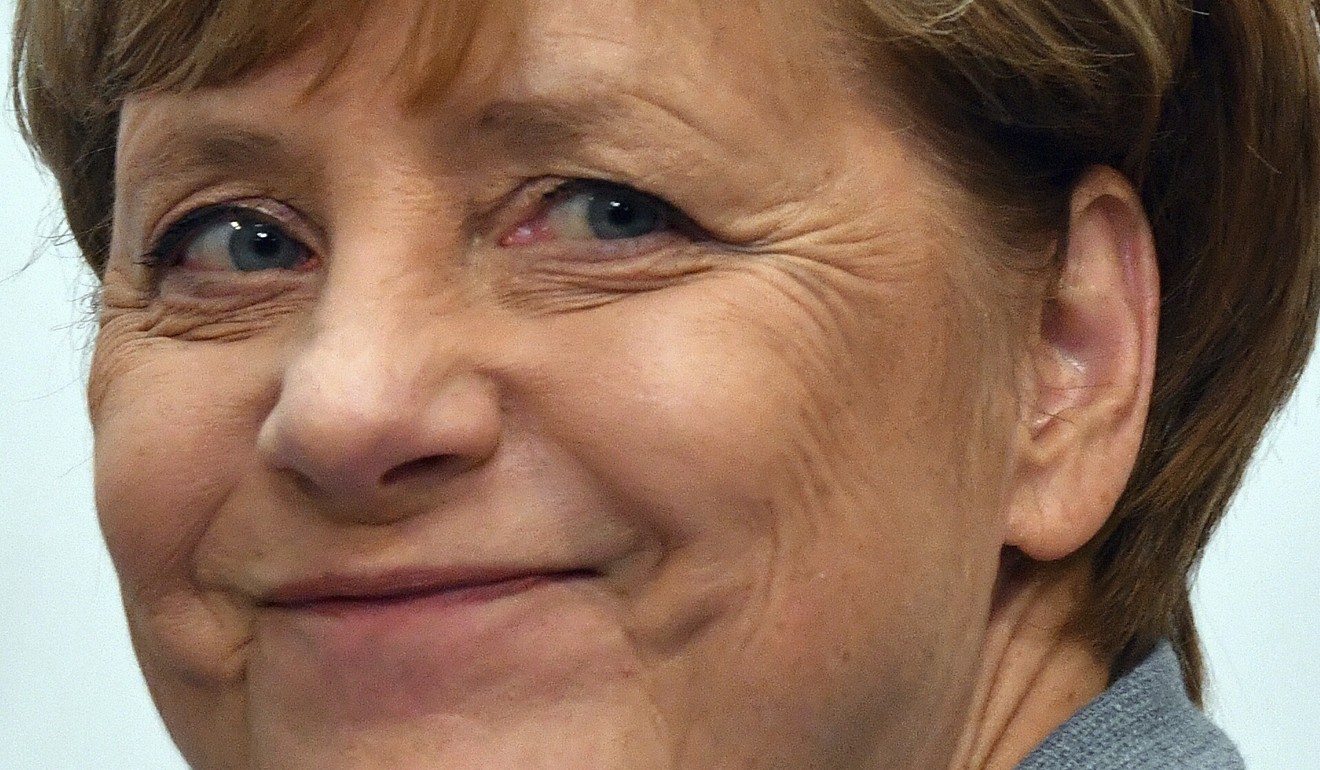
Merkel said her party will seek to talk to all three parties and: “It is important that Germany gets a good, stable government.”
She said she can’t say more until the talks have taken place.
The haggling could take weeks or even months.
She noted that the Netherlands still doesn’t have a new government, months after its election, “so I’m not the most urgent case”.
“I will assure my colleagues that Germany will act responsibly in the phase in which we are in transition,” Merkel told a press conference.
Eric Schweitzer, the head of the Association of German Chambers of Commerce and Industry, echoed Merkel’s comments.
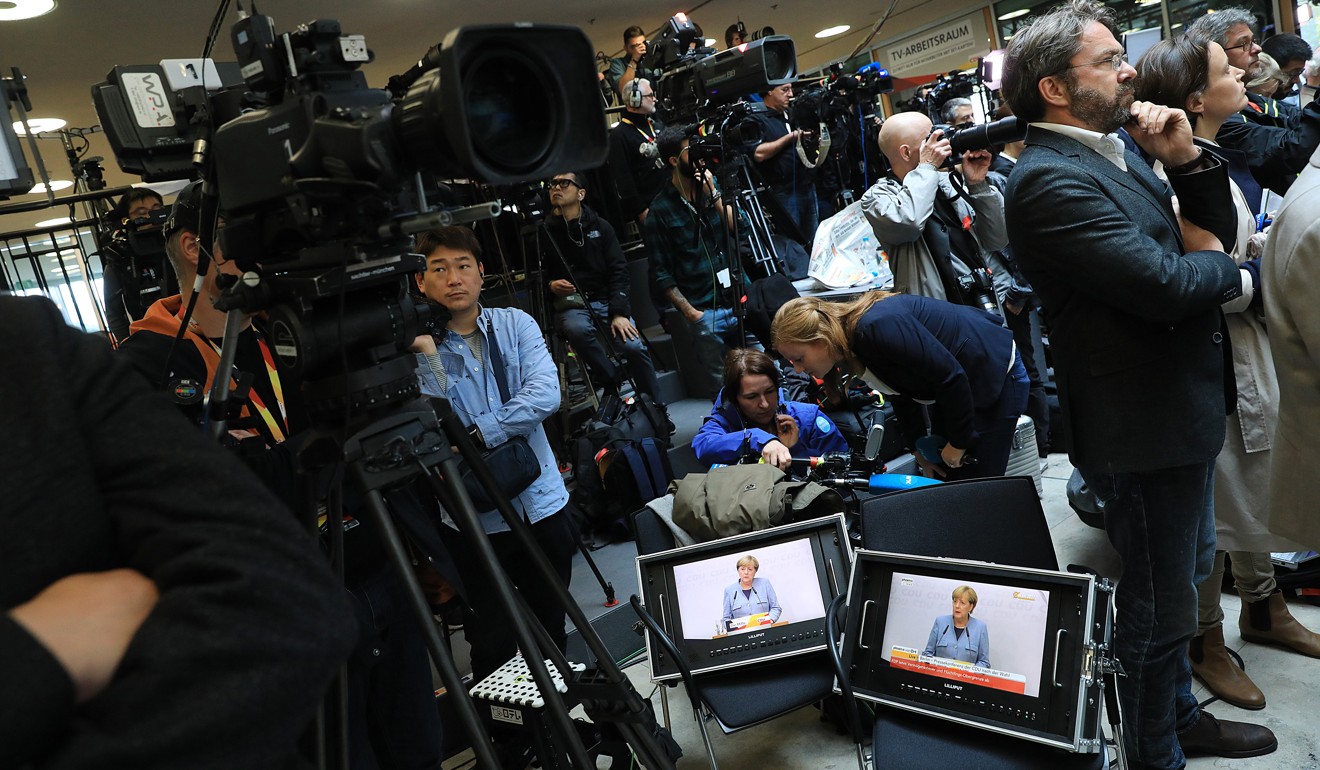
“In these difficult times, and this is a central issue for business, we need a stable government,” he said.
Germany enjoys healthy economic growth and low unemployment. Schweitzer said that “the economic situation is good, no question about that, but companies are concerned about whether it will stay that way”.
Merkel struck a reserved tone with regard to French calls for deeper European integration, saying her party would support steps that made sense but also saying countries must become more competitive.
The election has forced her to consider a new coalition with a party that has been critical of French President Emmanuel Macron’s ideas on Europe.
Merkel was asked how much scope she still had to compromise with Paris.
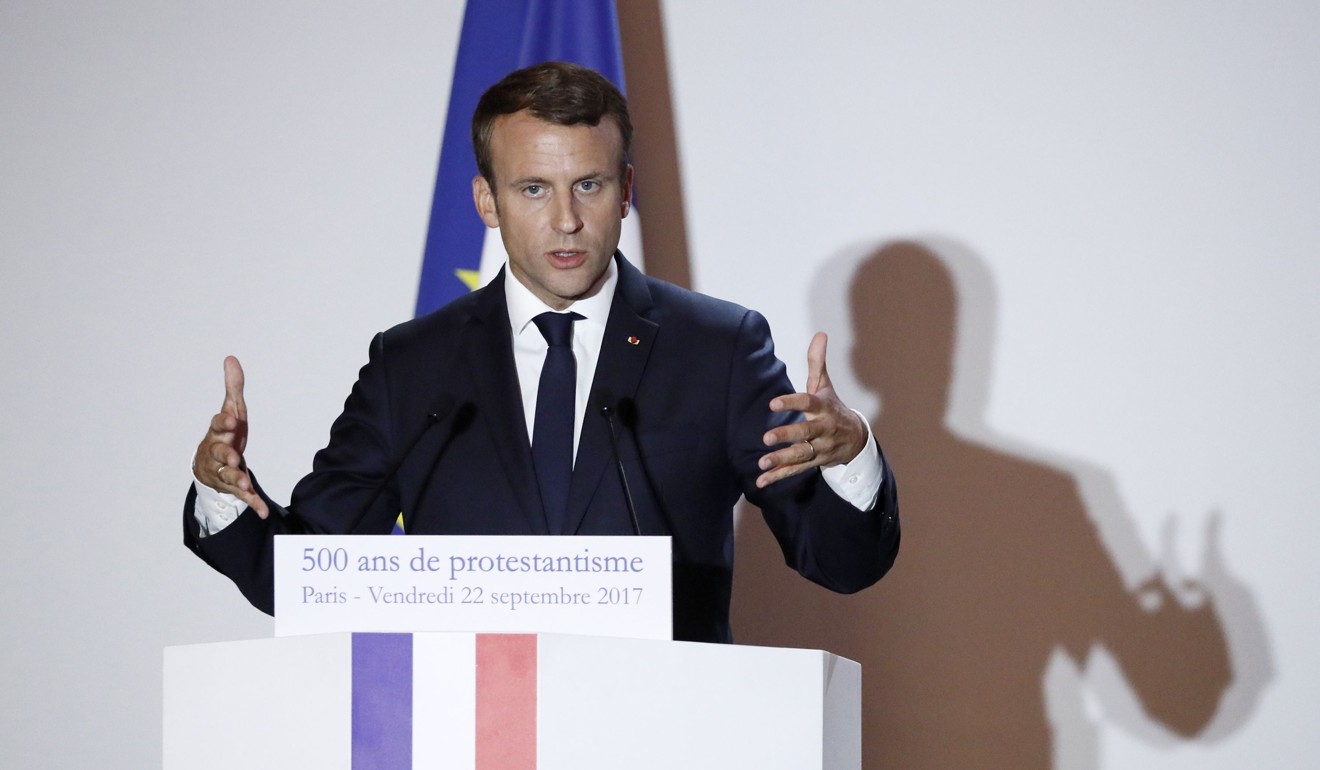
“I’m not going to rule out anything or set red lines,” she replied. “The union (her conservatives) will support what makes sense. My view is that we can use more Europe, but this has to lead to more competitiveness, more jobs and more clout for the European Union.”
She alluded to a planned speech by Macron in Paris on Tuesday at which he is expected to flesh out his ideas to create a budget and finance minister for the euro zone, saying it was important to move beyond such buzzwords and talk about detail.
Despite their strong showing in the elections, AfD members appeared closer to splitting up than celebrating their small victory.
A senior figure in the anti-immigrant party said co-leader Frauke Petry should quit.
Petry, who is cochairwoman of AfD, announced on Monday that she won’t join its new parliamentary caucus and walked out of a news conference.
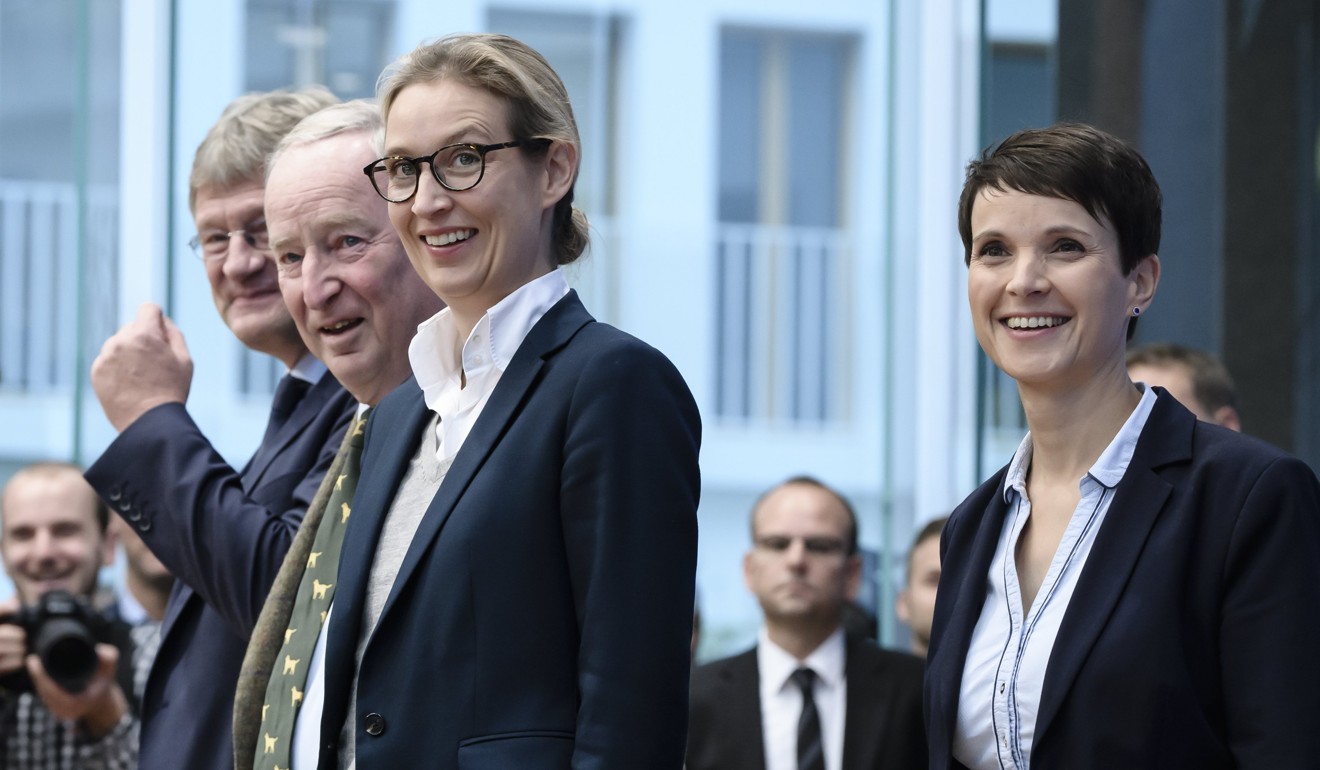
She’s been sidelined in the party recently after arguing that AfD needs to take a more moderate line if it wants to share power rather than just oppose the government.
Alice Weidel, who was one of AfD’s two figureheads going into Sunday’s vote, said Petry’s walkout “is hard to beat in terms of irresponsibility”.
At the same time, co-leader Alexander Gauland told Jews they have nothing to fear from his party’s third-place election finish. The comment came after several major Jewish groups expressed concern about the strong showing of AfD.
Gauland told reporters “there is nothing in our party, in our programme, that could disturb the Jewish people who live here in Germany”.
He added that he hadn’t met Jewish leaders, but was “ready at any time” to do so.
Associated Press, Reuters

